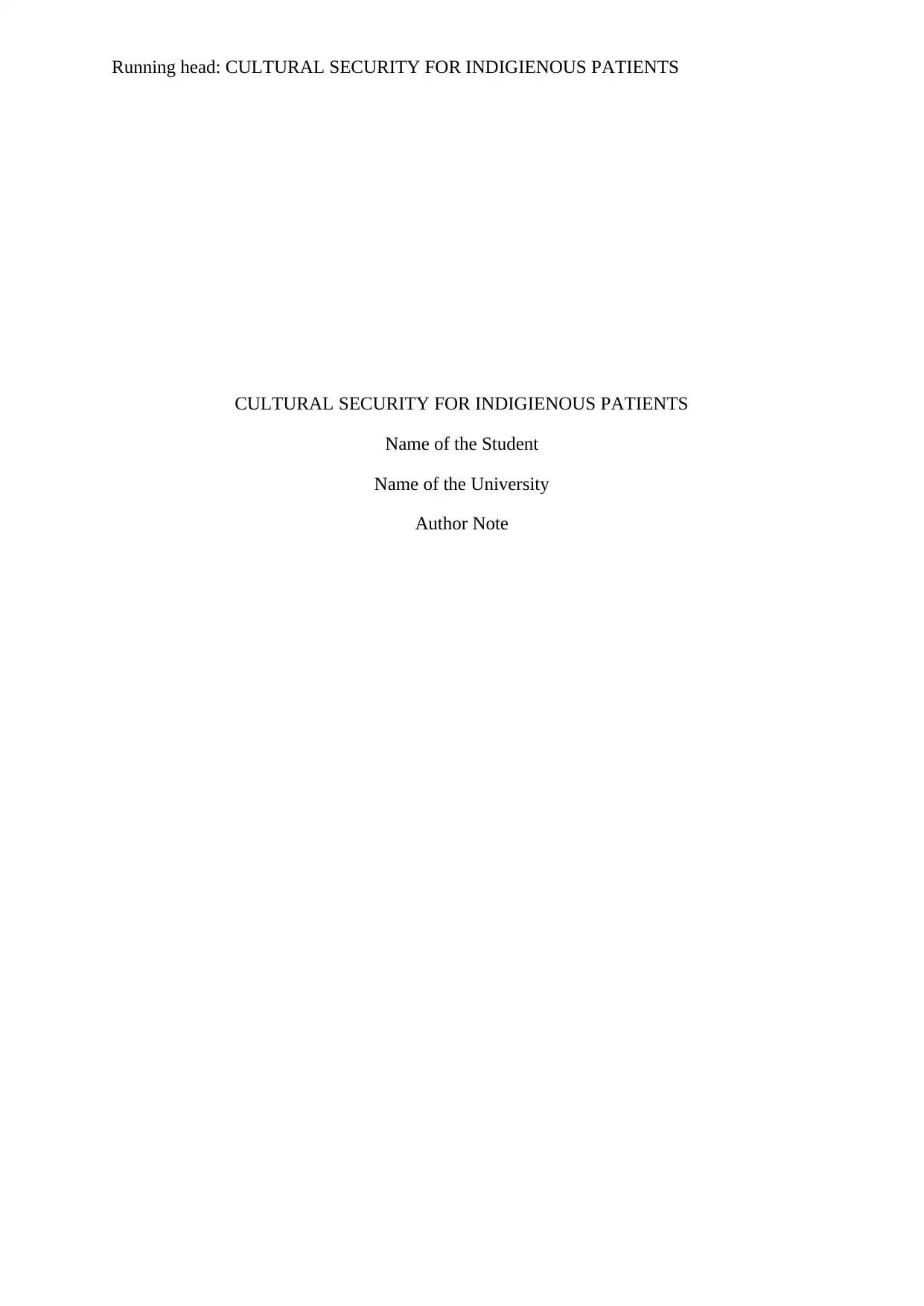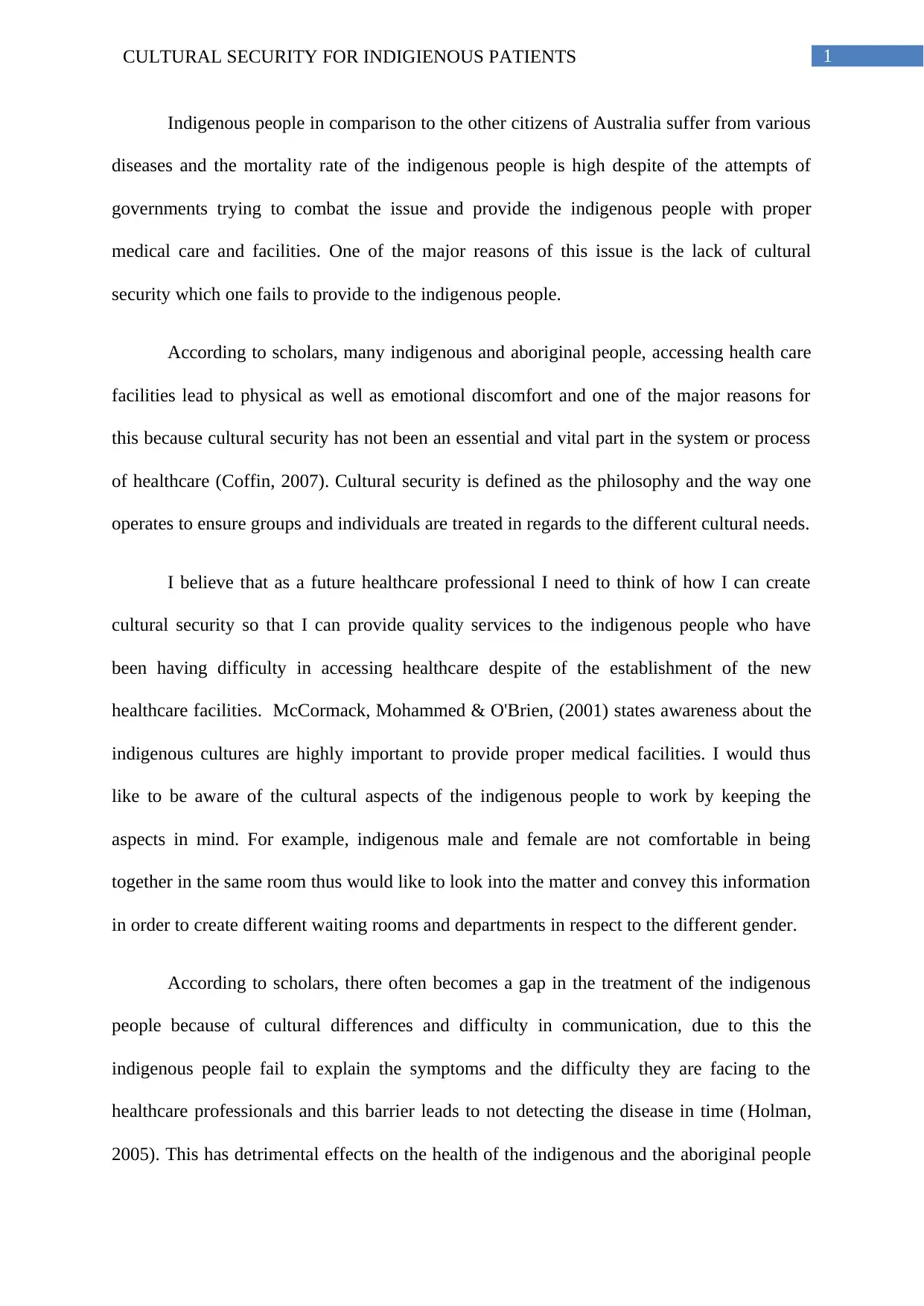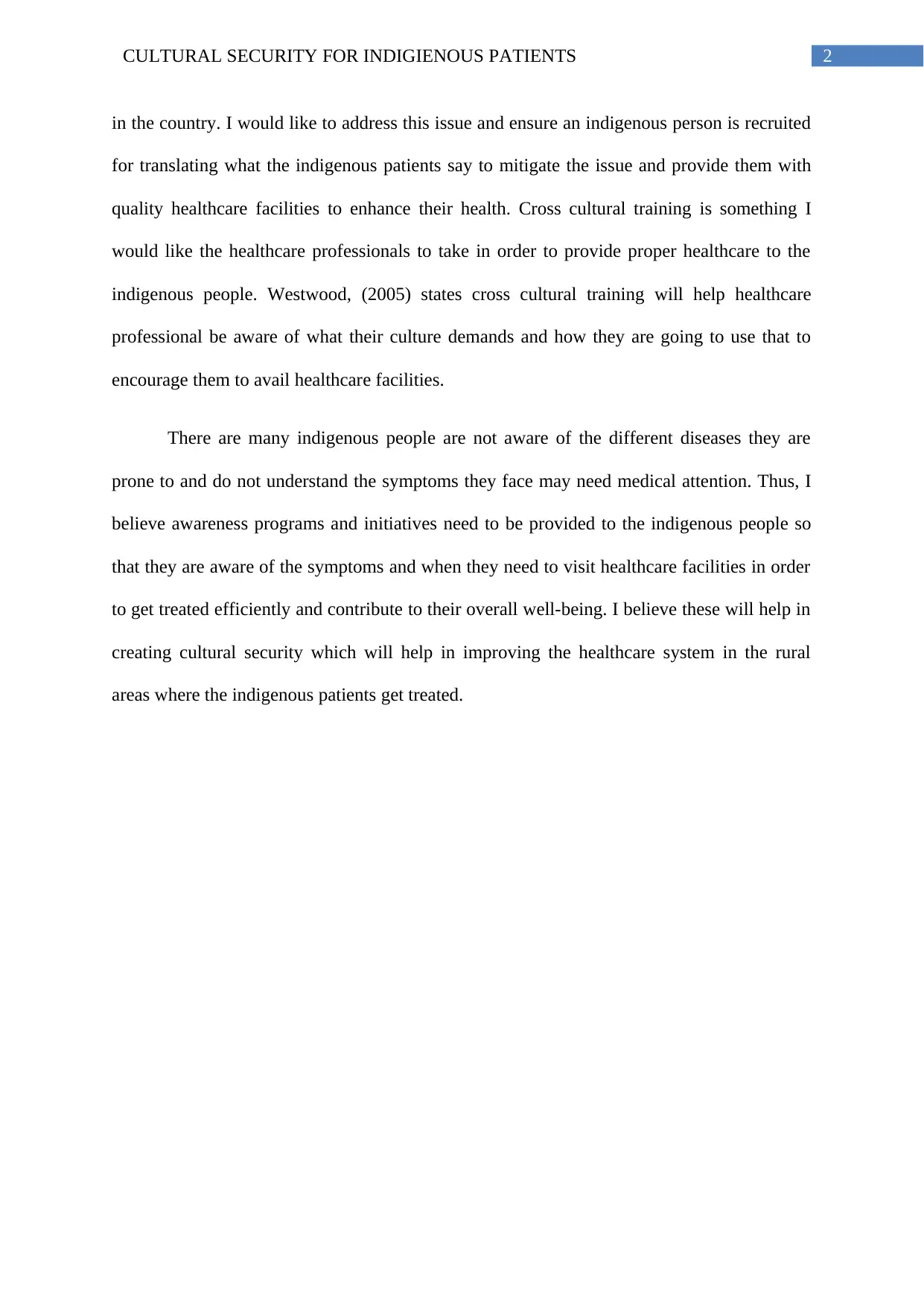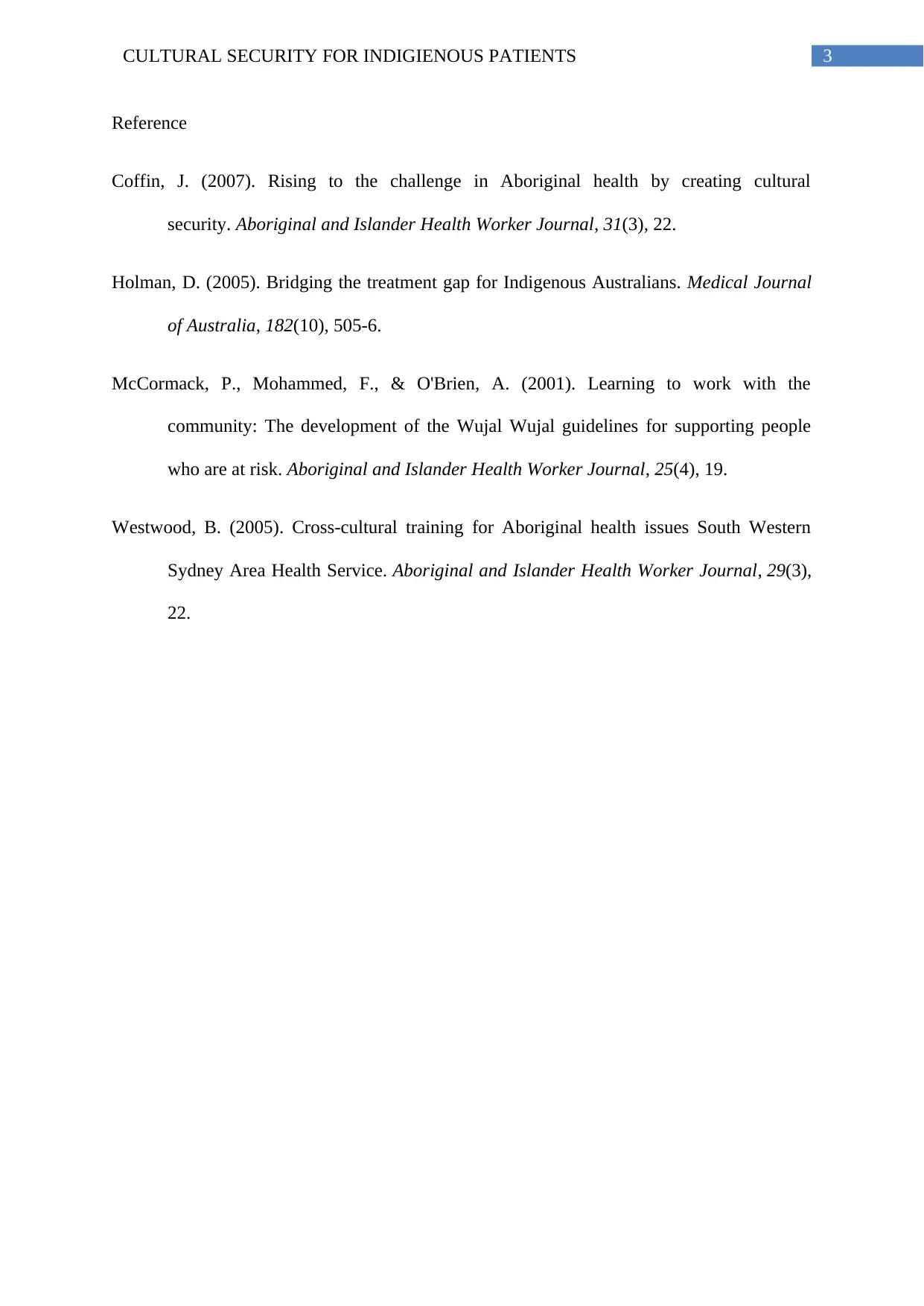Enhancing Cultural Security for Indigenous Patients in Healthcare
VerifiedAdded on 2022/08/24
|4
|758
|26
Report
AI Summary
This report delves into the critical issue of cultural security within healthcare settings, specifically focusing on the experiences of indigenous patients. It highlights the disparities in healthcare access and outcomes faced by indigenous populations, often attributed to a lack of cultural security within healthcare systems. The report emphasizes the importance of understanding and addressing cultural differences to improve patient care, including awareness of gender-related sensitivities, communication barriers, and the need for cross-cultural training for healthcare professionals. It proposes practical strategies such as employing indigenous translators, implementing cultural awareness programs, and creating culturally sensitive environments to enhance the healthcare experience for indigenous patients. The ultimate goal is to foster a more culturally secure healthcare system that effectively meets the needs of indigenous communities and contributes to their overall well-being. The report underscores the need for a dual approach, integrating both Western and indigenous perspectives to achieve better health outcomes.
1 out of 4










![[object Object]](/_next/static/media/star-bottom.7253800d.svg)